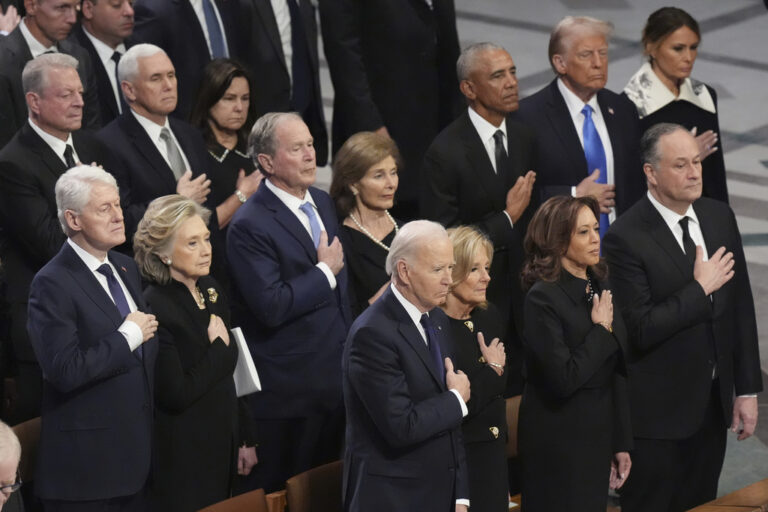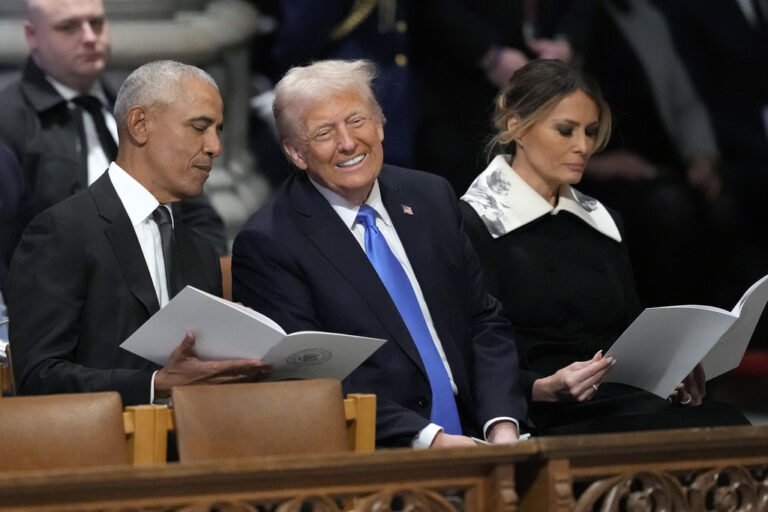 1:35PM EST: The house has just passed the $700B financial bailout bill in an effort to bring stability to reeling financial markets.
1:35PM EST: The house has just passed the $700B financial bailout bill in an effort to bring stability to reeling financial markets.
Prior to the official passing of the bill, Member after member went to the well of the chamber to voice discomfort and displeasure with many aspects of the bailout legislation. But they also said said they would vote for it anyway. And nearly 30 who voted against it on Monday said they had changed their minds.
President Bush was ready to sign it into law, and the Dow Jones industrial average on Wall Street was up in early trading in anticipation of the climactic vote.
After a week of tumult on Wall Street and Washington, the House moved on the $700 billion bailout of the financial industry, an unprecedented government intervention designed to steady an economy on the brink.
Rep. Joe Barton, R-Texas, who voted no earlier in the week, said that since the first vote, Senate leaders had tacked on billions of dollars in tax breaks and spending. Derisively, he called them “sweeteners to try and bribe enough” lawmakers to swing behind the bill.
If anything, the economic news added impetus to the sense of urgency.
The Labor Department said initial claims for jobless benefits had increased last week to the highest level since the gloomy days after the 2001 terror attacks. That came on top of Thursday’s Commerce Department report that factory orders in August plunged by four percent. And the government reported Friday that employers slashed 159,000 jobs from payrolls in September, the most in five years.
The stock market opened higher on anticipation that the bill would pass, and the financial industry shakeout rolled on unpredictably.
It was little more than two weeks ago that Treasury Secretary Henry Paulson and Federal Reserve Chairman Ben Bernanke concluded that the economy was in such danger that a massive government intervention in the private markets was essential.
The core of the plan remains little changed from its conception – the Treasury Department would have $700 billion at its disposal to purchase bad mortgage-related securities that are weighing down the balance sheets of institutions that hold them. The flow of credit has slowed, in some cases drying up, threatening the ability of businesses to conduct routine operations or expand.
At the same time, lawmakers have dramatically changed the measure, insisting on greater congressional supervision over the $700 billion, taking measures to protect taxpayers, and insisting on steps to crack down on so-called “golden parachutes” that go to corporate executives whose companies fail.
Earlier in the week, the legislation was altered to expand the federal insurance program for individual bank deposits, and the Securities and Exchange Commission took steps to ease the impact of the questionable mortgage-backed securities on financial institutions.
(Source: CBS News)











3 Responses
Congratulations.
BTW
I am looking for Shiduch for my child whose father is a maker of wooden arrows for children.
Hameivin Yavin.
If you are the one who makes the wooden arrows, then you now have an extra $200,000 annually. Can I have some?
To be honest, I had to Google “maker of wooden arrows for children” to know what you are talking about.)
“K’chitzim b’yad Gibor…”
It isn’t even an effective bailout. Overpaying for worthless securities is a subsidy, and if they aren’t overpaying, how are the banks any better off. Either way, the Treasury is out by at least a trillion, and a lot more if various guarantees are considered. We are in no danger of returning to conditions of the 1930s, but should wremember what happened to German democracy when they adopted a “printing press” approach to finance in 1923.